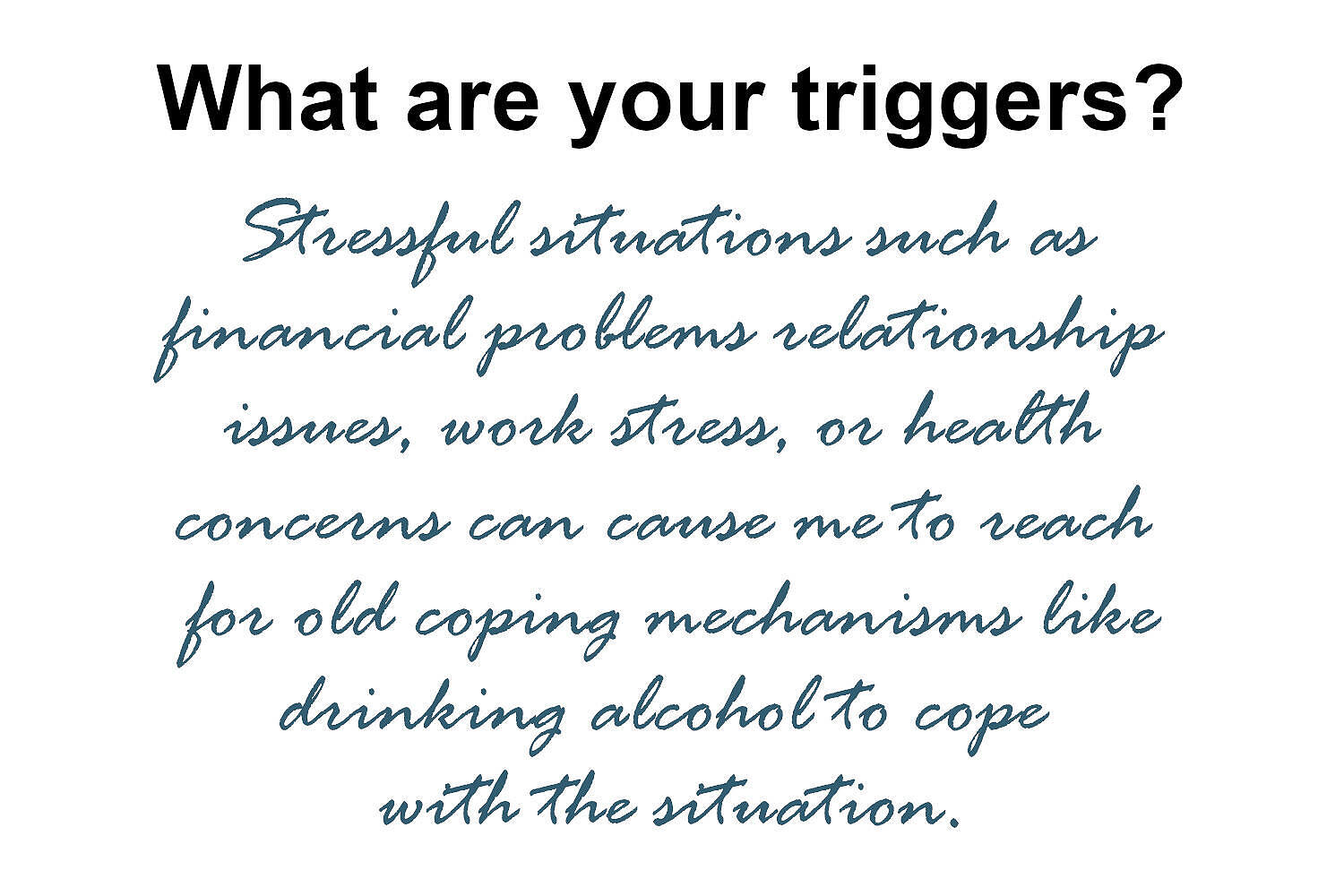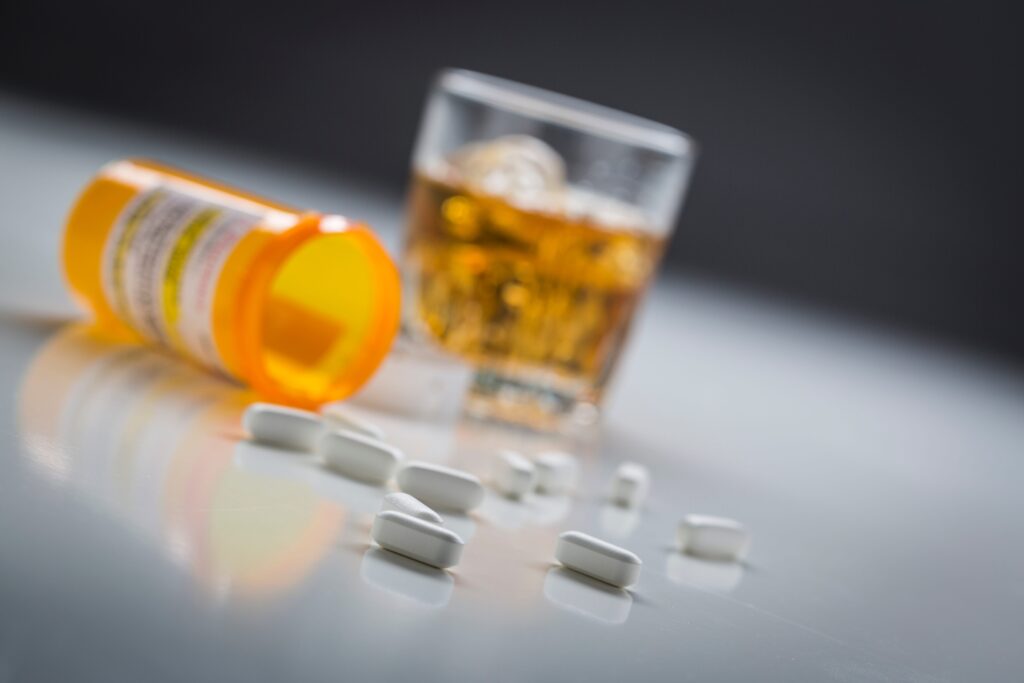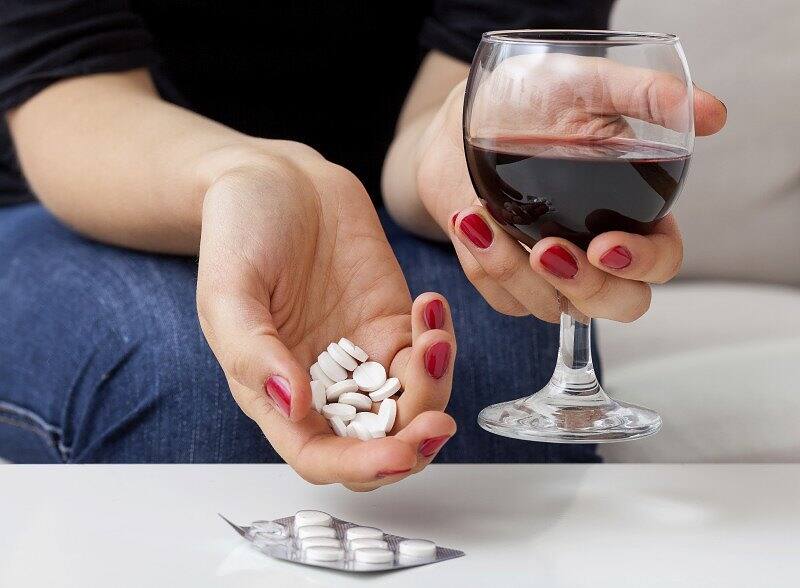
Relapse prevention aims to alter excessive or addictive behaviour patterns in those with alcohol addiction.
Recovering from addiction takes time, and relapses can sometimes happen.
Experiencing a relapse is not a sign of ‘weakness’ or ‘failure’. Rather, they are signs that old coping methods must be replaced with new ones.
The most important thing to remember is that relapses can be overcome, and a relapse prevention plan is the best way to do this.
Relapse prevention plans are designed to teach individuals how to harness their self-control. This can be achieved when an individual sees where they need to make behaviour changes to anticipate and cope with their desire to drink alcohol.
When it comes to beating addiction, you have to account for the challenges that come after you make the effort to quit. In this article, we’re going to talk about relapse, focusing on triggers, relapse scenarios, and relapse prevention.
Download: Relapse Prevention Plan PDF
What is an alcohol relapse?
A ‘lapse’ or ‘relapse’ refers to a return to alcohol or other drug use which someone has previously managed to stop completely. In an alcohol relapse, the use of alcohol goes back to previous levels of use or close to this.
A relapse is an instance when the person intentionally uses a substance again. They can come on slow or hit all at once. A good example is the idea that a person can “have a drink” since they’ve been sober for a while.
They might achieve their goal and have one drink today, but that habit has a way of spiralling and turning into the deep addiction it once was. A drug rehab relapse or the use of drugs after going to rehab can be very much the same way.
If you experience a relapse, it’s important that you don’t double down and admit defeat. People slip up all of the time and get back on track. In a lot of cases, you need relapse medicine to help you get off and avoid dangerous withdrawals.
Recovery is messy. It’s a personal battle, and you’re up against yourself. Getting off track is something that almost every recovering addict can relate to, so there’s a lot of empathy and support out there for you when you need help.
Addiction triggers
‘Triggers’ are described as a stimulus that elicits a reaction.
The ‘trigger’ is considered a key element in the craving response shown by those addicted to alcohol. This external stimulus would lead the individual to repeat alcohol or drug use or relapse after a period of abstinence.
Triggers could be:
- Objects
- People
- Places
- Sounds
- Smells
An example of a trigger can be:
“You’re walking down the street, and you see your friends drinking in your favourite bar to drink at. Suddenly, you feel overwhelmed by a need to drink alcohol.
You’ve committed to avoid going into the bar, but the thought of your friends enjoying themselves without you is so enticing. Your thought process might not be in your best interest, but there is something about seeing them happy while drinking alcohol feels irresistible. You find yourself standing in line at the bar to order a drink.”
Addiction is a little more complicated than the example above. The throes of substance abuse invade every area of your life. The people you’re around, the place you live, the songs on the radio, or the change of seasons could all elicit a desire to use.
It all depends on the reasons a person starts to use, where they operate, who they use with, and more, depending on the individual. Emotionally charged or stressful situations can have a similar effect as well.
The causes of relapse
Internal frustration
Amsel’s frustration theory suggests that it makes no sense to blame an external source (the trigger) as the reason for returning to addictive substances, and we should blame “frustration”.
Frustration can be described as the emotional response to being far away from the expected and the desired. This means there is frustration caused by the distance you have to create between the desire to drink alcohol and drinking alcohol.
Accepting that frustration comes before the external trigger appears is the best clinical approach to treating addiction. Avoiding external triggers is not always possible, so treating the internal struggle is necessary to avoid relapsing.
External triggers
The interruption of abstinence is almost always the result of a trigger. It’s very seldom that a person quits a drug and happens to start using it for no particular reason.
When a person wants to be clean and proceeds to relapse, there’s a reason that they do so.
The most common causes of alcohol relapses
- Stressful situations such as financial problems, relationship issues, work stress, or health concerns can cause someone to reach for old coping mechanisms like drugs or alcohol to cope with the situation.
- Social Situations
- Negative Emotions
- Cravings
- Boredom
A bad mood, a life change, running into an old friend, or getting fired from a job can all make it easier to start using again.
Some triggers are more powerful than others. The heaviest addictive trigger is one that the individual isn’t exposed to very often. It’s easier to work with pressures that occur frequently in a person’s life, but things that aren’t as usual are more complicated.
For example, someone might pass their old drug dealer’s house on the way to work every day. That might be triggering at first, but exposure to that pressure will lighten as time goes on.
On the other hand, running into the ex-girlfriend who introduced you to your drug of choice might throw you off the rails. The stress of the situation could set a dark mood, and she might even offer you a hit of something. Those curveballs test a person’s strength.
What about Will Power?
There is always a choice involved when it comes to facing relapse triggers. At the same time, it’s not as simple as it may seem.
Some choices are much harder and confusing to make than others. The word “trigger” implies that an impulse is set off in response to certain stimuli. People who have physical or sexual trauma might be triggered by something that happens to them and dissociates from the situation they’re in.
People respond in unusual ways to triggers because, for whatever reason, the stimuli they’re experiencing elicit an intense emotional response. Their heart rate increases, their thoughts speed rapidly, and their decision-making isn’t as sound as it was.
So, to say that relapsing is a choice would be true. Regardless of the emotional state, the individual is still making choices.
That said, the magnitude of the choice might be skewed by a compelling voice in the person’s head. That voice knows that drugs are a short-term solution to difficult emotions. In a moment of panic, that “choice” might seem right.
How can a person stay sober if it’s hard to make those decisions? How do you deal with addiction triggers when you can’t always expect them?
Let’s take a look at a few relapse prevention tips.
How to prevent an alcohol relapse
Practice Relapse Scenarios
The first thing to do is figure out what your main triggers are. You don’t have to experience them to understand what they’ll be.
Think through your relationship to drugs and the people you used them with. What places come to mind? Which people are the ones that stick out?
Is there an emotional response when you think of these people and places? The stronger the emotion, the more likely there’s a trigger wrapped in there somewhere.
Visualise how you’ll respond to those situations when they come up. See yourself refusing drugs or excusing yourself when things get tough. If you can think through these situations before they occur, you’ll be able to get out of them more effectively.
Remember that triggers produce a line of thinking that might not be in your best interest. A sober mind can go in the wrong direction and think that using again is the right choice.
So, practising those situations in your head will give you a guidebook to use when experiencing a trigger.
Make Necessary Changes
Changing how you live your life is a big help in preventing big triggers. Sobriety is a significant life change already, but we’re talking about the sort of people and places that surrounded you while you were using.
This can be one of the hardest parts of getting sober. You might have to separate between old friends who still use, go to different establishments, and more.
The changes you make have to be specific to your situation. It’s not good to be entirely separate from your old life. Acknowledge what could cause issues and make changes accordingly.
- Get Help When You’re Slipping
Even the most seasoned people in recovery have their bad days. That’s why you see people who have maintained 50 years of sobriety showing up to meetings.
Alcohol relapse is something that can occur at any point in sobriety, but those who remain clean are the ones who reach out and talk when they’re feeling like drinking again. The same goes for other addictions as well.
Your arsenal’s best relapse prevention tool is a good friend, professional, or sponsor. Other people have relapse prevention tips and might offer new techniques for substance abuse avoidance. That inner voice can pop up at any time; sometimes, the only way to get rid of it is to talk with someone else.
Taking care of your body during recovery is vital.
Your mind and your body are forever related, and if one is taken care of, the other responds beneficially. So, if you look after your body, your mind often follows, with good mental health, more ability to cope with stress, less chance of cravings for alcohol or drugs, and relapse prevention. This involves eating correctly, sleeping well each night, regular exercise, taking medication as prescribed, and proper hygiene. All of these are necessary life skills that will help defeat addiction.
Write down your addiction relapse prevention plan.
Have your addiction relapse prevention plan written down. Put it on the refrigerator. Have a copy in your wallet. You do not want to try to remember what to do when cravings are here. Your brain cannot think well when you are having a craving. Just have this list, your personalised addiction relapse prevention plan, ready to go, so all you need to do is look at it and know what to do.
Warning Signs of a Relapse
If you feel like you’re falling off track, it’s essential to take note. Signs that you’re falling toward a relapse can be a lack of motivation, thoughts of using, personality changes, and more.
A few things happen before a person slips up, and most of them have to do with changes in behaviour or thinking. When you notice that you’re shifting slightly, that’s the perfect time to reach out and double down with a trusted friend.
Calling for guidance is not an annoyance or a sign that you’re weak. It’s a sign of strength to humble yourself and get help.
Having Trouble with Addiction?
So, what are the triggers of addiction? They’re the main things you must look for as you recover. It can be not easy, though, and we understand that.
We’re here to help you recover in any way possible. It just takes a phone call to get help. Contact us to learn more or to hear about our services.


